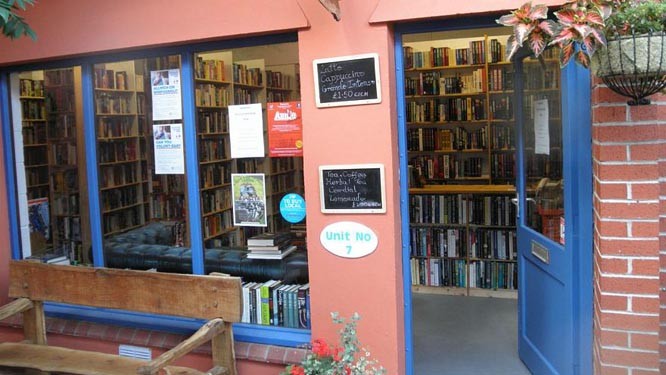

Last week, a man won a rather unusual prize in a raffle: a bookshop. This story from Britain is rather heartening because it’s a nice little tale of business owners not being driven by greed.
The owner of a bookshop in the West Wales town of Cardigan decided on this novel way to dispose of his business after he decided to retire due to his worsening osteoarthritis.
Paul Morris, 52, says he decided against selling the shop because "I thought instead, let’s give someone an opportunity in life which they otherwise might not have had. The principle was to make sure the shop continues in good hands".
The shop, called Bookends, is a profitable business which, reportedly, would have sold for around £30,000, yet Morris opted to raffle it off because it was important to him that he be sure that it would "continue in good hands".
He organised this process over three months so that during this period any customer who spent more than £20 was eligible to be entered in the draw. The lucky winner (picked out of a hat from 60 names) is a Dutchman named Ceisjan Van Heerden, who was a regular customer at the bookshop.
Van Heerden is a lover of books, and is now looking forward to running his own bookshop. Morris says that he is happy with his decision to raffle off the business, and glad that the bookshop will be run by somebody who was a regular customer, and is a lover of books. He also says he would not have retired had it not been for his worsening arthiritis.
Morris’s decision is both bold and intriguing. It is bold because it is rare for people not to choose the more lucrative option in a scenario like this. And it is intriguing because it illustrates that some people are still passionate enough about their work to care about whether the business then "goes to a good home".
Morris is unusual in that he decided on an option that did not make him any great profit. Twenty to thirty thousand pounds could have been a useful sum for a man suffering from osteoarthritis in his early 50s, yet he and his wife appear to have decided that they would be fine without the money.
It’s unusual behaviour because where money and assets are concerned most of us seem to be suffering from deep insecurities and anxieties. The whole question of what constitutes ‘enough’ -- i.e. when is enough wealth actually enough is, in reality, a very difficult one, and one where most people would say that it was their duty not to behave in an irresponsible financial manner.
It’s on questions like this that most of us get entangled in anxieties about the inheritance you should (apparently) be providing your children or grandchildren. There are very few individuals whose families are willing to allow them to give away wealth and property. Of course you do have cases of people giving away most of their assets in their lifetime, but these are few and far between.
So while in the story of ‘the man who won a bookshop in a raffle’, most people would envy the winner of the raffle, I actually feel a degree of envy (and admiration) for the owner who raffled off his business. This is because he seems to have formulated an answer to one of the most difficult questions we should keep asking ourselves: i.e. when is enough money actually ‘enough’?
Most people would answer ‘never’!
Best wishes